- Home
- Vladimir Nabokov
Ada, or Ardor Page 2
Ada, or Ardor Read online
Page 2
Even before the old Eskimo had shuffled off with the message, Demon Veen had left his pink velvet chair and proceeded to win the wager, the success of his enterprise being assured by the fact that Marina, a kissing virgin, had been in love with him since their last dance on New Year’s Eve. Moreover, the tropical moonlight she had just bathed in, the penetrative sense of her own beauty, the ardent pulses of the imagined maiden, and the gallant applause of an almost full house made her especially vulnerable to the tickle of Demon’s moustache. She had ample time, too, to change for the next scene, which started with a longish intermezzo staged by a ballet company whose services Scotty had engaged, bringing the Russians all the way in two sleeping cars from Belokonsk, Western Estoty. In a splendid orchard several merry young gardeners wearing for some reason the garb of Georgian tribesmen were popping raspberries into their mouths, while several equally implausible servant girls in sharovars (somebody had goofed—the word “samovars” may have got garbled in the agent’s aerocable) were busy plucking marshmallows and peanuts from the branches of fruit trees. At an invisible sign of Dionysian origin, they all plunged into the violent dance called kurva or “ribbon boule” in the hilarious program whose howlers almost caused Veen (tingling, and light-loined, and with Prince N.’s rose-red banknote in his pocket) to fall from his seat.
His heart missed a beat and never regretted the lovely loss, as she ran, flushed and flustered, in a pink dress into the orchard, earning a claque third of the sitting ovation that greeted the instant dispersal of the imbecile but colorful transfigurants from Lyaska—or Iveria. Her meeting with Baron O., who strolled out of a side alley, all spurs and green tails, somehow eluded Demon’s consciousness, so struck was he by the wonder of that brief abyss of absolute reality between two bogus fulgurations of fabricated life. Without waiting for the end of the scene, he hurried out of the theater into the crisp crystal night, the snow-flakes star-spangling his top hat as he returned to his house in the next block to arrange a magnificent supper. By the time he went to fetch his new mistress in his jingling sleigh, the last-act ballet of Caucasian generals and metamorphosed Cinderellas had come to a sudden close, and Baron d’O., now in black tails and white gloves, was kneeling in the middle of an empty stage, holding the glass slipper that his fickle lady had left him when eluding his belated advances. The claqueurs were getting tired and looking at their watches when Marina in a black cloak slipped into Demon’s arms and swan-sleigh.
They reveled, and traveled, and they quarreled, and flew back to each other again. By the following winter he began to suspect she was being unfaithful to him, but could not determine his rival. In mid-March, at a business meal with an art expert, an easy-going, lanky, likeable fellow in an old-fashioned dress-coat, Demon screwed in his monocle, unclicked out of its special flat case a small pen-and-wash and said he thought (did not doubt, in fact, but wished his certitude to be admired) that it was an unknown product of Parmigianino’s tender art. It showed a naked girl with a peach-like apple cupped in her half-raised hand sitting sideways on a convolvulus-garlanded support, and had for its discoverer the additional appeal of recalling Marina when, rung out of a hotel bathroom by the phone, and perched on the arm of a chair, she muffled the receiver while asking her lover something that he could not make out because the bath’s voice drowned her whisper. Baron d’Onsky had only to cast one glance at that raised shoulder and at certain vermiculated effects of delicate vegetation to confirm Demon’s guess. D’Onsky had the reputation of not showing one sign of esthetic emotion in the presence of the loveliest masterpiece; this time, nonetheless, he laid his magnifier aside as he would a mask, and allowed his undisguised gaze to caress the velvety apple and the nude’s dimpled and mossed parts with a smile of bemused pleasure. Would Mr. Veen consider selling it to him there and then, Mr. Veen, please? Mr. Veen would not. Skonky (a oneway nickname) must content himself with the proud thought that, as of today, he and the lucky owner were the sole people to have ever admired it en connaissance de cause. Back it went into its special integument; but after finishing his fourth cup of cognac, d’O. pleaded for one last peep. Both men were a little drunk, and Demon secretly wondered if the rather banal resemblance of that Edenic girl to a young actress, whom his visitor had no doubt seen on the stage in “Eugene and Lara” or “Lenore Raven” (both painfully panned by a “disgustingly incorruptible” young critic), should be, or would be, commented upon. It was not: such nymphs were really very much alike because of their elemental limpidity since the similarities of young bodies of water are but murmurs of natural innocence and double-talk mirrors, that’s my hat, his is older, but we have the same London hatter.
Next day Demon was having tea at his favorite hotel with a Bohemian lady whom he had never seen before and was never to see again (she desired his recommendation for a job in the Glass Fish-and-Flower department in a Boston museum) when she interrupted her voluble self to indicate Marina and Aqua, blankly slinking across the hall in modish sullenness and bluish furs with Dan Veen and a dackel behind, and said:
“Curious how that appalling actress resembles ‘Eve on the Clepsydrophone’ in Parmigianino’s famous picture.”
“It is anything but famous,” said Demon quietly, “and you can’t have seen it. I don’t envy you,” he added; “the naïve stranger who realizes that he or she has stepped into the mud of an alien life must experience a pretty sickening feeling. Did you get that small-talk information directly from a fellow named d’Onsky or through a friend of a friend of his?”
“Friend of his,” replied the hapless Bohemian lady.
Upon being questioned in Demon’s dungeon, Marina, laughing trillingly, wove a picturesque tissue of lies; then broke down, and confessed. She swore that all was over; that the Baron, a physical wreck and a spiritual Samurai, had gone to Japan forever. From a more reliable source Demon learned that the Samurai’s real destination was smart little Vatican, a Roman spa, whence he was to return to Aardvark, Massa, in a week or so. Since prudent Veen preferred killing his man in Europe (decrepit but indestructible Gamaliel was said to be doing his best to forbid duels in the Western Hemisphere—a canard or an idealistic President’s instant-coffee caprice, for nothing was to come of it after all), Demon rented the fastest petroloplane available, overtook the Baron (looking very fit) in Nice, saw him enter Gunter’s Bookshop, went in after him, and in the presence of the imperturbable and rather bored English shopkeeper, back-slapped the astonished Baron across the face with a lavender glove. The challenge was accepted; two native seconds were chosen; the Baron plumped for swords; and after a certain amount of good blood (Polish and Irish—a kind of American “Gory Mary” in barroom parlance) had bespattered two hairy torsoes, the white-washed terrace, the flight of steps leading backward to the walled garden in an amusing Douglas d’Artagnan arrangement, the apron of a quite accidental milkmaid, and the shirtsleeves of both seconds, charming Monsieur de Pastrouil and Colonel St. Alin, a scoundrel, the latter gentlemen separated the panting combatants, and Skonky died, not “of his wounds” (as it was viciously rumored) but of a gangrenous afterthought on the part of the least of them, possibly self-inflicted, a sting in the groin, which caused circulatory trouble, notwithstanding quite a few surgical interventions during two or three years of protracted stays at the Aardvark Hospital in Boston—a city where, incidentally, he married in 1869 our friend the Bohemian lady, now keeper of Glass Biota at the local museum.
Marina arrived in Nice a few days after the duel, and tracked Demon down in his villa Armina, and in the ecstasy of reconciliation neither remembered to dupe procreation, whereupon started the extremely interesnoe polozhenie (“interesting condition”) without which, in fact, these anguished notes could not have been strung.
(Van, I trust your taste and your talent but are we quite sure we should keep reverting so zestfully to that wicked world which after all may have existed only oneirologically, Van? Marginal jotting in Ada’s 1965 hand; crossed out lightly in her latest wavering one.
)
That reckless stage was not the last but the shortest—a matter of four or five days. He pardoned her. He adored her. He wished to marry her very much—on the condition she dropped her theatrical “career” at once. He denounced the mediocrity of her gift and the vulgarity of her entourage, and she yelled he was a brute and a fiend. By April 10 it was Aqua who was nursing him, while Marina had flown back to her rehearsals of “Lucile,” yet another execrable drama heading for yet another flop at the Ladore playhouse.
“Adieu. Perhaps it is better thus,” wrote Demon to Marina in mid-April, 1869 (the letter may be either a copy in his calligraphic hand or the unposted original), “for whatever bliss might have attended our married life, and however long that blissful life might have lasted, one image I shall not forget and will not forgive. Let it sink in, my dear. Let me repeat it in such terms as a stage performer can appreciate. You had gone to Boston to see an old aunt—a cliché, but the truth for the nonce—and I had gone to my aunt’s ranch near Lolita, Texas. Early one February morning (around noon chez vous) I rang you up at your hotel from a roadside booth of pure crystal still tear-stained after a tremendous thunderstorm to ask you to fly over at once because I, Demon, rattling my crumpled wings and cursing the automatic dorophone, could not live without you and because I wished you to see, with me holding you, the daze of desert flowers that the rain had brought out. Your voice was remote but sweet; you said you were in Eve’s state, hold the line, let me put on a penyuar. Instead, blocking my ear, you spoke, I suppose, to the man with whom you had spent the night (and whom I would have dispatched, had I not been overeager to castrate him). Now that is the sketch made by a young artist in Parma, in the sixteenth century, for the fresco of our destiny, in a prophetic trance, and coinciding, except for the apple of terrible knowledge, with an image repeated in two men’s minds. Your runaway maid, by the way, has been found by the police in a brothel here and will be shipped to you as soon as she is sufficiently stuffed with mercury.”
3
The details of the L disaster (and I do not mean Elevated) in the beau milieu of last century, which had the singular effect of both causing and cursing the notion of “Terra,” are too well-known historically, and too obscene spiritually, to be treated at length in a book addressed to young laymen and lemans—and not to grave men or gravemen.
Of course, today, after great anti-L years of reactionary delusion have gone by (more or less!) and our sleek little machines, Faragod bless them, hum again after a fashion, as they did in the first half of the nineteenth century, the mere geographic aspect of the affair possesses its redeeming comic side, like those patterns of brass marquetry, and bric-à-Braques, and the ormolu horrors that meant “art” to our humorless forefathers. For, indeed, none can deny the presence of something highly ludicrous in the very configurations that were solemnly purported to represent a varicolored map of Terra. Ved’ (“it is, isn’t it”) sidesplitting to imagine that “Russia,” instead of being a quaint synonym of Estoty, the American province extending from the Arctic no-longer-vicious Circle to the United States proper, was on Terra the name of a country, transferred as if by some sleight of land across the ha-ha of a doubled ocean to the opposite hemisphere where it sprawled over all of today’s Tartary, from Kurland to the Kuriles! But (even more absurdly), if, in Terrestrial spatial terms, the Amerussia of Abraham Milton was split into its components, wich tangible water and ice separating the political, rather than poetical, notions of “America” and “Russia,” a more complicated and even more preposterous discrepancy arose in regard to time—not only because the history of each part of the amalgam did not quite match the history of each counterpart in its discrete condition, but because a gap of up to a hundred years one way or another existed between the two earths; a gap marked by a bizarre confusion of directional signs at the crossroads of passing time with not all the no-longers of one world corresponding to the not-yets of the other. It was owing, among other things, to this “scientifically ungraspable” concourse of divergences that minds bien rangés (not apt to unhobble hobgoblins), rejected Terra as a fad or a fantom, and deranged minds (ready to plunge into any abyss) accepted it in support and token of their own irrationality.
As Van Veen himself was to find out, at the time of his passionate research in terrology (then a branch of psychiatry) even the deepest thinkers, the purest philosophers, Paar of Chose and Zapater of Aardvark, were emotionally divided in their attitude toward the possibility that there existed “a distortive glass of our distorted glebe” as a scholar who desires to remain unnamed has put it with such euphonic wit. (Hm! Kveree-kveree, as poor Mlle L. used to say to Gavronsky. In Ada’s hand.)
There were those who maintained that the discrepancies and “false overlappings” between the two worlds were too numerous, and too deeply woven into the skein of successive events, not to taint with trite fancy the theory of essential sameness; and there were those who retorted that the dissimilarities only confirmed the live organic reality pertaining to the other world; that a perfect likeness would rather suggest a specular, and hence speculatory, phenomenon; and that two chess games with identical openings and identical end moves might ramify in an infinite number of variations, on one board and in two brains, at any middle stage of their irrevocably converging development.
The modest narrator has to remind the rereader of all this, because in April (my favorite month), 1869 (by no means a mirabilic year), on St. George’s Day (according to Mile Larivière’s maudlin memoirs) Demon Veen married Aqua Durmanov—out of spite and pity, a not unusual blend.
Was there some additional spice? Marina, with perverse vainglory, used to affirm in bed that Demon’s senses must have been influenced by a queer sort of “incestuous” (whatever that term means) pleasure (in the sense of the French plaisir, which works up a lot of supplementary spinal vibrato), when he fondled, and savored, and delicately parted and defiled, in unmentionable but fascinating ways, flesh (une chair) that was both that of his wife and that of his mistress, the blended and brightened charms of twin peris, an Aquamarina both single and double, a mirage in an emirate, a geminate gem, an orgy of epithelial alliterations.
Actually, Aqua was less pretty, and far more dotty, than Marina. During her fourteen years of miserable marriage she spent a broken series of steadily increasing sojourns in sanatoriums. A small map of the European part of the British Commonwealth—say, from Scoto-Scandinavia to the Riviera, Altar and Palermontovia—as well as most of the U.S.A., from Estoty and Canady to Argentina, might be quite thickly prickled with enameled red-cross-flag pins, marking, in her War of the Worlds, Aqua’s bivouacs. She had plans at one time to seek a modicum of health (“just a little grayishness, please, instead of the solid black”) in such Anglo-American protectorates as the Balkans and Indias, and might even have tried the two Southern Continents that thrive under our joint dominion. Of course, Tartary, an independent inferno, which at the time spread from the Baltic and Black seas to the Pacific Ocean, was touristically unavailable, though Yalta and Altyn Tagh sounded strangely attractive … But her real destination was Terra the Fair and thither she trusted she would fly on libellula-long wings when she died. Her poor little letters from the homes of madness to her husband were sometimes signed: Madame Shchemyashchikh-Zvukov (“Heart rending-Sounds”).
After her first battle with insanity at Ex en Valais she returned to America, and suffered a bad defeat, in the days when Van was still being suckled by a very young wet nurse, almost a child, Ruby Black, born Black, who was to go mad too: for no sooner did all the fond, all the frail, come into close contact with him (as later Lucette did, to give another example) than they were bound to know anguish and calamity, unless strengthened by a strain of his father’s demon blood.
Aqua was not quite twenty when the exaltation of her nature had begun to reveal a morbid trend. Chronologically, the initial stage of her mental illness coincided with the first decade of the Great Revelation, and although she might have found just as ea
sily another theme for her delusion, statistics show that the Great, and to some Intolerable, Revelation caused more insanity in the world than even an over-preoccupation with religion had in medieval times.
Revelation can be more perilous than Revolution. Sick minds identified the notion of a Terra planet with that of another world and this “Other World” got confused not only with the “Next World” but with the Real World in us and beyond us. Our enchanters, our demons, are noble iridescent creatures with translucent talons and mightily beating wings; but in the eighteen-sixties the New Believers urged one to imagine a sphere where our splendid friends had been utterly degraded, had be come nothing but vicious monsters, disgusting devils, with the black scrota of carnivora and the fangs of serpents, revilers and tormentors of female souls; while on the opposite side of the cosmic lane a rainbow mist of angelic spirits, inhabitants of sweet Terra, restored all the stalest but still potent myths of old creeds, with rearrangement for melodeon of all the cacophonies of all the divinities and divines ever spawned in the marshes of this our sufficient world.

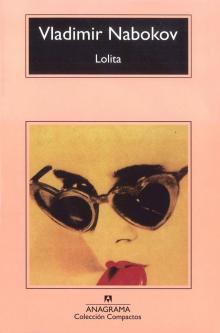 Lolita
Lolita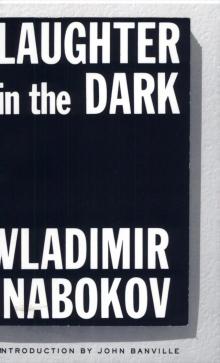 Laughter in the Dark
Laughter in the Dark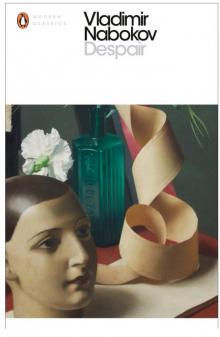 Despair
Despair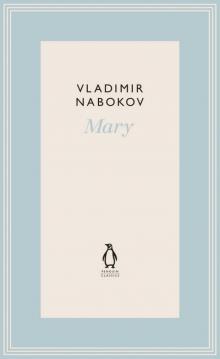 Mary
Mary The Enchanter
The Enchanter Pnin
Pnin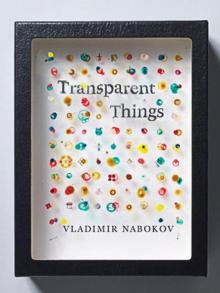 Transparent Things
Transparent Things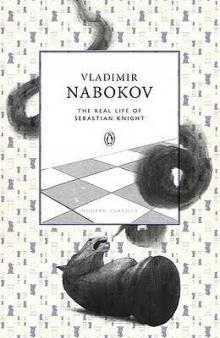 The Real Life of Sebastian Knight
The Real Life of Sebastian Knight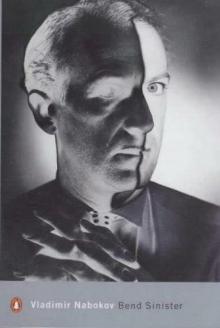 Bend Sinister
Bend Sinister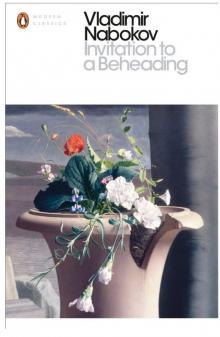 Invitation to a Beheading
Invitation to a Beheading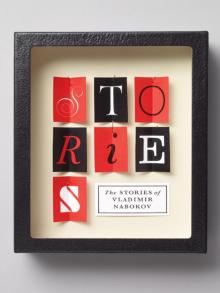 The Stories of Vladimir Nabokov
The Stories of Vladimir Nabokov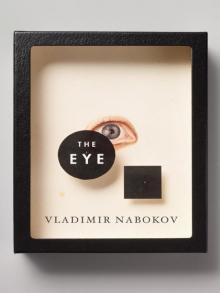 The Eye
The Eye Letters to Véra
Letters to Véra Speak, Memory
Speak, Memory The Gift
The Gift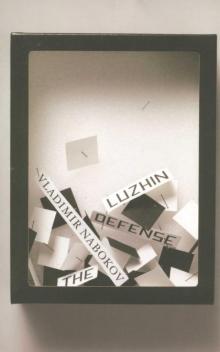 The Luzhin Defense
The Luzhin Defense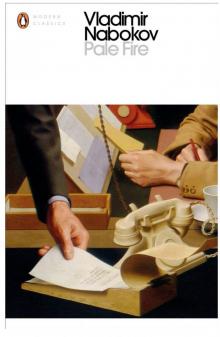 Pale Fire
Pale Fire Glory
Glory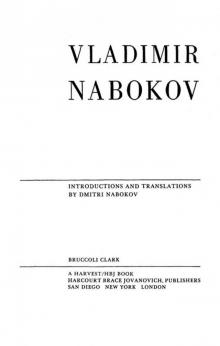 Man From the USSR & Other Plays
Man From the USSR & Other Plays Vladimir Nabokov: Selected Letters 1940-1977
Vladimir Nabokov: Selected Letters 1940-1977 Strong opinions
Strong opinions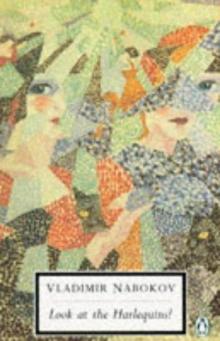 Look at the Harlequins!
Look at the Harlequins!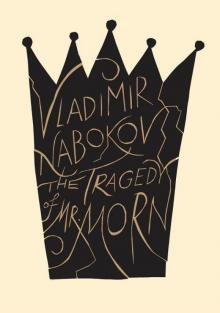 The Tragedy of Mister Morn
The Tragedy of Mister Morn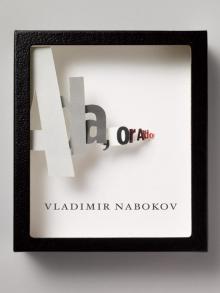 Ada, or Ardor
Ada, or Ardor Lectures on Russian literature
Lectures on Russian literature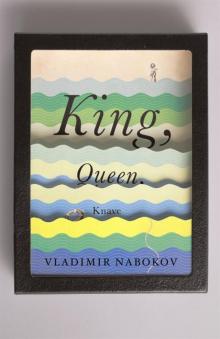 King, Queen, Knave
King, Queen, Knave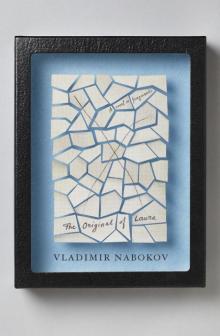 The Original of Laura
The Original of Laura